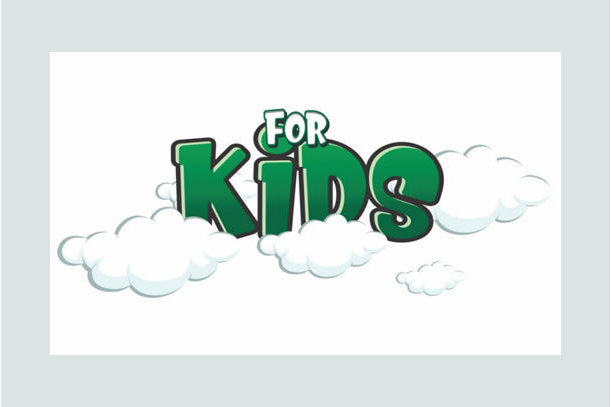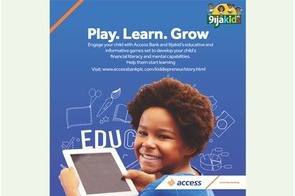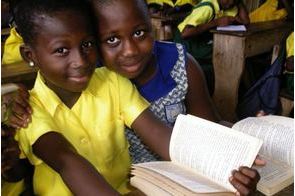Preparing young people today for tomorrow’s world

Summary
Bilaad Realty’s “For Kids” approach to change involves organizing communities of industry leaders into self-led teams that, like the learning ecosystems we want to create, systemically plan, communicate, learn, and expose children to the unspoken career choices that exists, thereby distributing leadership of system change widely.
We are already having glimpses of the fundamental ways that the Fourth Industrial Revolution will change the way we live, work, and relate with one another. Also known as Industry 4.0, the Fourth Industrial Revolution is marked by the convergence of the advances in artificial intelligence (AI), robotics, the Internet of Things (IoT), 3D printing, genetic engineering, quantum computing, and other technologies. This phenomenon will witness hyper-connectedness of workplaces, things, and peoples.
More investments are pouring into the frontier technologies of Industry 4.0. But investment in human capital will be the most significant. Prior to the nineteenth century, systematic investment in human capital was not considered an essential policy in any country. As researchers have found, expenditures on schooling, on-the-job training, and other similar forms of investment were quite small, and access was based on privilege. This began to radically change during the last century, as education, skills, and the acquisition of knowledge became the key determinants of the productivity of individuals and nations. The twentieth century has, therefore, been referred to as “the Age of Human Capital.” How much a country succeeded depended on how well it performed in developing and utilizing the skills and knowledge of the majority of its population.
The industrial age has taught us how to educate human “robots”, i.e., people who learn in standardized settings and become good at repeating what they were told to do. The robots of the Industry 4.0 are going to be better at programmed behaviour and more efficient at carrying out routine tasks. Inevitably, they will take over millions of jobs being currently done by humans. Yet, the importance of human knowledge and skills will not be diminished in the new age, although they would have to be employed differently and in new areas.
In a thought leadership on the future of work by the Organisation of Economic Co-operation and Development (OECD), Tencent co-founder, Chen Yidan, famously wrote: “In this age of accelerations, we need to think harder about what makes us first class humans, how we complement, not substitute, the artificial intelligence we have created in our computers, and how we build a culture that facilitates learning, unlearning and re-learning throughout life.”
Some insights have already emerged, including that the new generation of citizens require not just strong academic skills, but also curiosity, imagination, empathy, entrepreneurship and resilience. Today’s young people need confidence and determination to create their own future employment and manage their careers in new ways.
Rethinking the Education Model
In Nigeria, it would appear that insufficient attention is being given to the emerging trends. Our young people continue to languish in the labour market as a result of the mismatch of what the society and economy demand and the education systems supply. A large percentage of young Nigerians have continued to go to the university to study Engineering, Medicine and Law, deemed as prestigious professions for securing lucrative careers. But this traditional view needs to shift. Today’s younger generations need to make more decisions about what, where and how hard they will study, and good schools and industries will respond by helping them become critical thinkers.
Conversations about education are shifting to focus on identifying and cultivating the complex 21st-century skills that are needed to be globally competitive in a fast-changing world. It is one thing to know what those skills are, but it is quite another to know how to develop them on a sustainable basis by not overstretching the young people. One approach for this is “learning progressions,” which refers to the journeys that students take as they move toward mastering skills in specific areas or disciplines, rather than a focus on outcomes in the form of scores on standardized tests.
Career Guidance
As we already know, every day, teenagers make important decisions that are relevant to their future. Discussions on this by the youth themselves are going on in social media. A UNESCO Youth conversation on Facebook highlighted a finding by the OECD on how the youth are preparing for the future: “The time and energy they dedicate to learning and the fields of study where they place their greatest efforts profoundly shape the opportunities they will have throughout their lives. A key source of motivation for students to study hard is to realize their dreams for work and life.”
Those dreams and aspirations do not just depend on talents. They are often hugely influenced by family background and the depth and breadth of knowledge about the world of work by parents. This confers significant advantage on children that are privileged to have this competitive edge.
The world of work is changing so quickly. It is important for all stakeholders to take a fresh look at how we can better prepare the younger generations of Nigerians for the future. This call for concerted efforts is more important now than ever, especially as many challenges – including insecurity and high unemployment rate – are distracting a strong focus on the education of the vast majority of young people in the country.
It is also important to emphasise the role of the private sector in the continuing development of human capital in the country. In practical terms, no one knows how industries work and how to improve labour productivity than the businesses. The private sector, therefore, needs to step up and leverage its first-hand knowledge of the workplace to provide the necessary platforms to help young people – not only those in their employ – to continue to learn and acquire skills. Businesses have to also proactively engage the educational institutions on the contents that link education to the evolving needs of the workplace.
Making A Difference
In their 2008 seminal work, Gutman & Akerman argued that aspirations are important and that the early years of a child’s life are also very key in their formation and development. The idea of empowering the whole person for the whole world is also gaining popularity very rapidly. But complex change is required on a massive scale. It entails transforming existing education systems into new “learning ecosystems,” which refers to a dynamic networks of educators and leaders who influence the experience of young people and are working together to ensure that every child develops the knowledge, skills, and inclinations that are prerequisites for creating a better world.
This transformation requires that parents, teachers, health workers, employers, media influencers, technologists, and industries commit explicitly to this shared purpose. The learning ecosystems will need to continuously adapt to the changing needs of every child and to the ever-shifting demands of the world they live in.
Transforming the system must begin with us. We cannot create learning ecosystems if we are not modeling them ourselves. That is why our Bilaad Realty’s “For Kids” approach to change involves organizing communities of industry leaders into self-led teams that, like the learning ecosystems we want to create, systemically plan, communicate, learn, and expose children to the unspoken career choices that exists, thereby distributing leadership of system change widely.
Bilaad Realty Limited is an Abuja-based company focused on delivering sustainable real estate solutions.
Related
-
UN chief makes recommendations for reopening schools
António Guterres said the COVID-19 pandemic has created the largest disruption to education in history.
-
Access Bank drives financial e-learning for kids amid COVID-19
Access Bank said the educative and informative games would help develop children's financial literacy and mental ...
-
How books can defuse the population bomb in developing countries
Countries need to acknowledge family planning as a human right and empower women to recognise their right in determining ...







